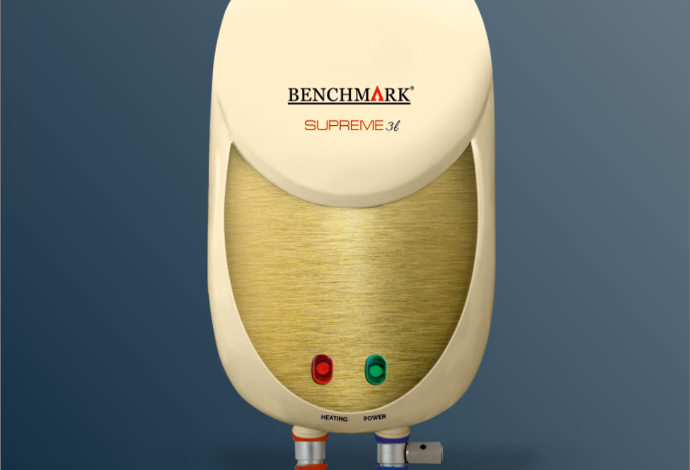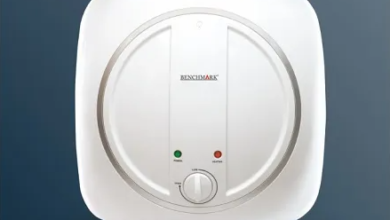Harnessing the Power of the Sun: A Comprehensive Guide to Solar Water Heaters

Introduction:
In recent years, there has been a growing interest in renewable energy sources as a means to mitigate climate change and reduce dependence on fossil fuels. Among these sources, solar energy stands out as one of the most abundant and accessible options. Solar water heaters, in particular, have gained popularity as an eco-friendly alternative to conventional water heating systems. In this comprehensive guide, we will explore the benefits, types, installation process, and maintenance of solar water heaters, empowering you to make an informed decision about incorporating this sustainable technology into your home or business.
Understanding Solar Water Heaters:
Solar water heaters harness the power of sunlight to heat water for various applications, including bathing, washing dishes, and space heating. Unlike photovoltaic (PV) solar panels, which convert sunlight directly into electricity, solar water heaters utilize thermal energy to heat water. This distinction makes them highly efficient for heating water, especially in regions with ample sunlight.
Benefits of Solar Water Heaters:
1. Renewable Energy Source: Solar energy is inexhaustible and abundant, making it a sustainable alternative to fossil fuels for heating water. By harnessing sunlight, solar water heaters reduce reliance on non-renewable resources and help combat climate change.
2. Cost Savings: Although the initial investment in a solar water heater may be higher than traditional water heating systems, the long-term savings can be significant. By reducing or eliminating monthly energy bills, solar water heaters offer a compelling return on investment over their lifespan, which can exceed 20 years with proper maintenance.
3. Environmental Impact: Switching to solar water heaters reduces carbon emissions and air pollution associated with conventional water heating methods, such as natural gas or electricity. By using clean, renewable energy, homeowners and businesses can contribute to a healthier environment and a more sustainable future.
Types of Solar Water Heaters:
1. Flat-Plate Collectors: Flat-plate collectors are the most common type of solar thermal collector used in solar water heating systems. They consist of a flat, rectangular panel containing an array of tubes or channels through which water or a heat transfer fluid flows. The absorber plate absorbs sunlight and transfers heat to the circulating fluid, which then heats the water in the storage tank.
2. Evacuated Tube Collectors: Evacuated tube collectors are more efficient than flat-plate collectors in colder climates or areas with less sunlight. These collectors consist of a series of glass tubes containing a heat-absorbing material, such as copper or aluminium, surrounded by a vacuum to minimize heat loss. As sunlight passes through the outer glass tube, it heats the absorber material, which then transfers heat to the circulating fluid.
3. Integral Collector-Storage Systems: Integral collector-storage (ICS) systems, also known as batch or breadbox heaters, combine the solar collector and storage tank into a single unit. These systems are simple in design and well-suited for mild climates or applications with low hot water demand. However, they may be less efficient than other types of solar water heaters, particularly in colder climates or during periods of high demand.
Installation Process:
Installing a solar water heater requires careful planning and professional expertise to ensure optimal performance and reliability. The process typically involves the following steps:
1. Site Assessment: A qualified installer will assess your property to determine the best location for the solar collectors based on factors such as sunlight exposure, roof orientation, and shading. They will also evaluate your hot water usage and existing plumbing system to design a system that meets your needs.
2. Collector Installation: Once the site assessment is complete, the solar collectors will be installed on your roof or another suitable location using mounting hardware designed to withstand weather and wind loads. The collectors will be positioned to maximize sunlight exposure and connected to the storage tank and circulation system.
3. Plumbing Connections: The plumbing connections between the solar water heater and your existing water supply and distribution system will be installed, including pipes, valves, and fittings. This may require modifications to your plumbing infrastructure to accommodate the solar water heater.
4. Controls and Monitoring: The solar water heater will be equipped with controls and monitoring devices to regulate the circulation of water and optimize energy efficiency. These may include sensors, thermostats, pumps, and controllers that adjust the flow rate and temperature of the circulating fluid based on environmental conditions and hot water demand.
5. Testing and Commissioning: Once the installation is complete, the system will be tested to ensure proper operation and performance. This may involve filling the system with water, checking for leaks, and verifying that the solar collectors are generating heat efficiently. The installer will also provide instructions on how to use and maintain the solar water heater for optimal results.
Maintenance:
Proper maintenance is essential to keep your solar water heater running smoothly and efficiently. Here are some tips for maintaining your system:
1. Regular Inspections: Periodically inspect the solar collectors, plumbing connections, and storage tank for signs of damage, leaks, or corrosion.
2. Cleaning: Keep the solar collectors clean and free of debris, dust, and other obstructions that can reduce sunlight absorption and heat transfer. Depending on your location and environmental conditions, you may need to clean the collectors several times per year.
3. Fluid Checks: If your solar water heater uses a heat transfer fluid, such as glycol, check the fluid levels and condition regularly. Top off the fluid if necessary and replace it according to the manufacturer’s recommendations to maintain proper heat transfer and freeze protection.
Conclusion:
Solar water heaters offer a sustainable, cost-effective, and environmentally friendly solution for heating water in homes, businesses, and other applications. By harnessing the power of the sun, these systems can significantly reduce energy consumption, lower utility bills, and reduce carbon emissions. With proper installation, maintenance, and care, solar water heaters can provide reliable hot water for years to come, making them a smart investment in a greener future.





